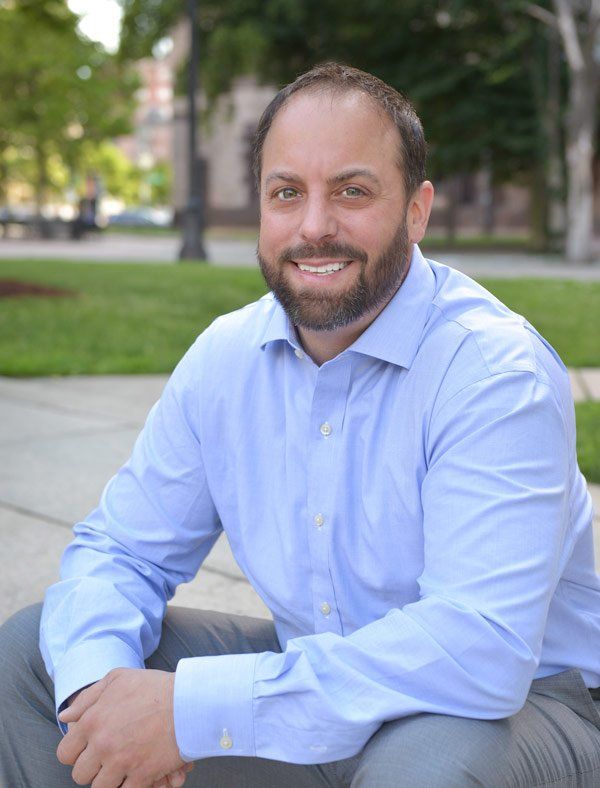Nursing Home Abuse
Both Massachusetts and Federal laws provide patients with certain rights when staying at a nursing home. Nursing homes need to provide their residents a safe and clean environment, the right to proper medical care, the right to make decisions about medical care, and daily attention which is free from abuse and neglect.
Nursing home neglect has been defined in 105 CMR 155.003 as a failure to provide the goods and services necessary to avoid physical harm, mental anguish, or mental illness. In determining whether or not neglect has occurred, the following standards below apply.
Conditions of patient or resident neglect
- An individual has failed to provide appropriate care, treatment, or service to the patient or resident; and their failure to provide the treatment, care, or service to the patient or resident is either intentional or the result of carelessness; and as a result of the failure to provide treatment, care or service, the individual has failed to maintain the health or safety of the patient or resident as evidenced by harm to the patient or resident or a deterioration in the patient or resident’s physical, mental, or emotional condition.
Common causes of nursing home abuse
Nursing home abuse and neglect can happen in a number of ways. Research suggests that abused elders die earlier than seniors who are well cared for, even with no chronic or life-threatening conditions. Remember, abuse of any type can significantly impact your loved one’s health and quality of life.
Common causes of injuries are from:
- Neglect: Neglect is the most common unintentional nursing home abuse, generally occurring when a facility has poor management or oversight. Some common reasons of neglect are management issues, overcrowding, or understaffing.
- Physical Abuse: Physical abuse includes violent behavior such as unexplained bruises and cuts, torn or bloody clothes, broken bones, etc. Unnecessary use of restraints might also be considered physical abuse.
- Emotional Abuse: Emotional abuse involves humiliation, ignoring the patient, isolating them, and intimidating them through yelling, threats, and mocking. Sometimes abusers even threaten patients in order to keep them quiet about the abuse so they won’t share it with others.
- Financial Abuse: Financial abuse is again among the most common form of non-physical abuse of the elderly. An unscrupulous caregiver may misuse the elder’s checks, accounts, and credit cards, or forge signatures, steal the patient’s identity, or authorize withdrawals or transfer of money.
Nursing home neglect often includes wrongful death, fractures, broken bones, slip and falls, malnutrition, significant weight loss, verbal abuse, physical abuse, failure to provide proper personal hygiene, failure to provide sufficient medical attention, failure to prevent bed sores, or failure to protect patients or residents from hazards.
Common signs of nursing home abuse
To prevent your loved from being subject to any of these forms of abuse, it’s vital to know the common warning signs of nursing home abuse and neglect. Watch for the following:
- Untreated medical conditions
- Bruises, cuts, abrasions, or other injuries
- Unacceptable unhygienic conditions
- Sudden and unexplained weight loss
- Changes in behavior
- Sexually transmitted diseases or infections
- Unusual financial transactions
- Problems with staff and disorganization in the facility
- Direct complaints from your loved one
It is important to note that if warning signs are consistent with underlying medical problems, you should always follow up on any potential problem. If the problem persists, get in touch with a nursing home abuse lawyer. Attorneys with expertise In nursing home abuse can evaluate your case and help you to ensure that your loved one is in the best possible environment.
How can a nursing home abuse lawyer help?
Nursing home abuse cases are a complicated area of personal injury law so it's important to work with an experienced personal injury lawyer for guidance on these matters. Additionally, they will be able to rightfully handle and preserve evidence in your case if you are looking for justice in a settlement or through legal proceedings.
Attorney Jason Ranallo has helped individuals who were injured by nursing home neglect and abuse for over a decade and is passionate about achieving justice for our most vulnerable loved ones. You can rest assured that by having the Law Offices of Jason M. Ranallo, P.C. working for you, your case is in the hands of an experienced, compassionate, knowledgeable, and aggressive attorney who knows how to get results.
The Law Offices of Jason M. Ranallo, P.C. will provide you with the personal attention and skill that each case needs. We will handle every aspect of your nursing home and neglect case, and will go to trial if a full and fair settlement agreement cannot be reached.
Victim of nursing home abuse? Get in touch with the Law Offices of Jason M. Ranallo, P.C.
The Law Office of Jason M. Ranallo, P.C. is committed to aggressively and compassionately representing victims and their families in all nursing home abuse and neglect matters. We can help with the following:
- Filing a lawsuit against a nursing home
- Gathering evidence, records, and information
- Filing the claim in court
- Preparation for Trial
- Resolving the claim by either settlement, mediation, arbitration or trial
If you or a loved one was injured because of nursing home neglect or abuse, call the Law Offices of Jason M. Ranallo, P.C. today at 781-344-6200
Additionally, you can contact the firm online to schedule a free consultation to review your case. With us, you can be sure you’re getting the high-quality legal representation your family deserves. For your convenience, home, hospital, evening, and weekend appointments are available upon request.
I cannot say enough good things in regards to Attorney Ranallo. In addition to being a phenomenal attorney, he is just as extraordinary a person. Jason is kind, honest and compassionate. His knowledge and experience never once went unnoticed.
Not knowing where to turn for legal help, I met Jason and instantly knew iI was in great hands. He listens to his client and welcomes your questions. Jason spoke to me in layman's terms - clear and concise. I was very pleased with his services and highly recommend him should a situation present itself. Thank you, Attorney, for having my best interest!
Deb Quinlan
FREE CASE EVALUATION
Nursing Home Abuse Contact Form
Nursing Home Abuse FAQ
What is nursing home abuse?
Nursing home abuse refers to the physical, emotional, sexual, or financial mistreatment of residents in nursing homes or assisted living facilities. It also includes neglect, which is the failure to provide necessary care, resulting in harm to the resident.
What are the signs of nursing home abuse?
Signs of nursing home abuse can include unexplained injuries, sudden weight loss, poor hygiene, emotional withdrawal, unexplained financial transactions, and changes in behavior. Bruises, bedsores, and frequent infections are also common indicators.
How common is nursing home abuse?
Nursing home abuse is unfortunately more common than many people realize. According to the National Center on Elder Abuse, about 1 in 10 elderly individuals experience some form of abuse, and many cases go unreported.
What should I do if I suspect nursing home abuse?
If you suspect nursing home abuse, report it immediately. Contact local authorities, Adult Protective Services, or the facility’s administration. Additionally, consult a personal injury lawyer experienced in elder abuse cases to explore legal options.
Can I sue a nursing home for abuse?
Yes, you can sue a nursing home for abuse. A personal injury lawyer can help you file a lawsuit against the facility or individual staff members responsible for the abuse, seeking compensation for medical expenses, pain and suffering, and other damages.
How can a personal injury lawyer help with a nursing home abuse case?
A personal injury lawyer can help by investigating the abuse, gathering evidence, interviewing witnesses, and filing a lawsuit on behalf of the victim. They can also negotiate with the nursing home’s insurance company and represent the victim in court if necessary.
How long do I have to file a nursing home abuse lawsuit?
The statute of limitations for filing a nursing home abuse lawsuit varies by state. In Massachusetts, you generally have three years from the date of the abuse or discovery of the abuse to file a lawsuit. Consult with a personal injury lawyer promptly to ensure your case is filed on time.
What evidence is needed to prove nursing home abuse?
Evidence needed to prove nursing home abuse can include medical records, photographs of injuries, witness statements, financial records, and expert testimony. A personal injury lawyer can help gather and present this evidence effectively.
Are there federal regulations protecting nursing home residents?
Yes, there are federal regulations under the Nursing Home Reform Act that protect residents’ rights to receive quality care and live free from abuse and neglect. Facilities receiving Medicare and Medicaid funding must comply with these regulations.


